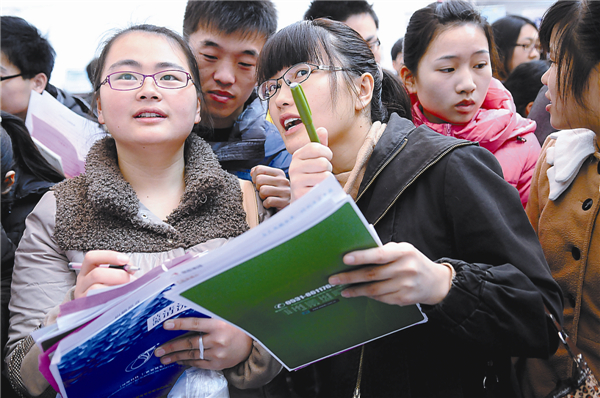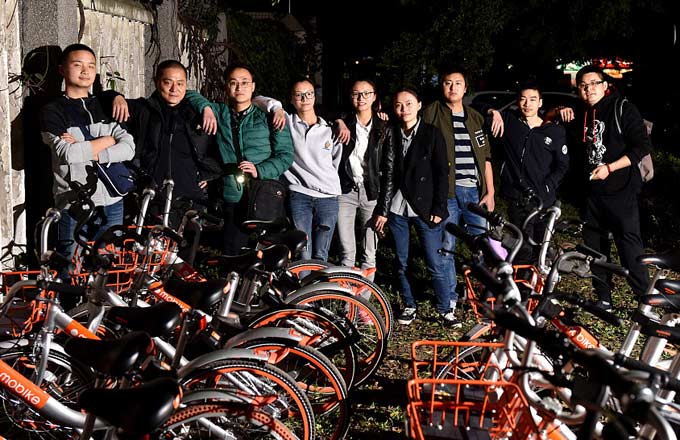Flash quit
 |
|
Teaching college graduates in Shandong province seek employment at a jobs fair hosted especially for them, which offered more than 10,000 posts. Zhang Zhenxiang / for China Daily |
Growing numbers ditch jobs early, reports Shi Jing in Shanghai.
Would you quit your job if the heavens opened and you didn't own an umbrella?
This isn't the opening line of a corny joke or a lame excuse to ask for a day off. It's a genuine question posed to Cherol Cheuk, a manager at human resources provider Hudson Shanghai.
Cheuk said the president of a company she doesn't want to name for reasons of client confidentiality, received a phone call from his assistant one morning. She cited the above excuse as her reason for quitting on only her third day on the job. Both Cheuk, a human resources professional for more than 20 years, and the company president described the move as "ridiculous".
The "no umbrella" story is highly unusual, of course, but young people quitting their jobs very shortly after starting - within three months or even three days - for reasons beyond the comprehension of older workers, is a relatively new phenomenon in China, and has spawned a new term, "flash quit".
After three rounds of interviews, Hu Xiao, a top student at Fudan Journalism School, was offered a position as a marketing trainee with Kimberly Clarke, the global health products provider on the Fortune 500 list of top companies. It's a job most of his peers would move heaven and Earth to get.
The prospects were enticing; although Hu did not divulge a specific figure, he claimed the salary on offer was "way higher than the monthly average of 4,500 yuan ($729) among Fudan graduates".
The daily commute posed few problems. After riding just nine stops on Line 8 of the Shanghai subway, Hu would arrive at his office, located in People's Square, right in the heart of the city. A ride of no more than 30 minutes and with no transitions is a blessing compared with the travails of most cosmopolitan dwellers. However, Hu still found it "a little bit troublesome to travel to and from work every day" because he "lives on the outskirts of the city", although in the eyes of many observers, his residential area is not on the outskirts at all.
Despite all these favorable conditions, 24-year-old Hu quit his job in October, three months after he started.
A failure to adapt
"My mother had anaphylactic shock at the time. I was terrified and at a loss and there was nothing to do but go back home to Kunming (in Yunnan province). I knew I could offer very little help, but I can't afford to lose my mom," he said.
His mother's ill health was the tipping point that prompted Hu to quit his job, but he didn't deny that his inability to adjust to the office atmosphere was another reason he handed in his notice.
"I didn't get on very well with my immediate boss. As I was a new graduate, I didn't adapt very well to the corporate culture there," he admitted.
In the eyes of many alumni and friends, voluntary rejection of the "perfect" job was a fall from grace for Hu. It took him a long time to adjust to a situation he had never experienced before as the top student at his school, the one who received the most job offers.
"But in retrospect, it did me a lot of good. People need setbacks to grow up," he said.
Hu's parents, who are mid-level bank executives, were quite content with his decision. Their only concern was that their son should be content, no matter what career path he chose.
"Some older people will think that quitting my job was immature because there were many other ways of solving the problem. Others may think that people of - my age, the post-1980 and post-1990 generations - are so spoiled that we run away as soon as we are faced with a problem. But in my opinion, that simply isn't the case. We are young people who make our own judgments and have our own ideals and expectations," he said.
"Meanwhile, there are plenty of other opportunities. I have nothing to lose," he added.


















